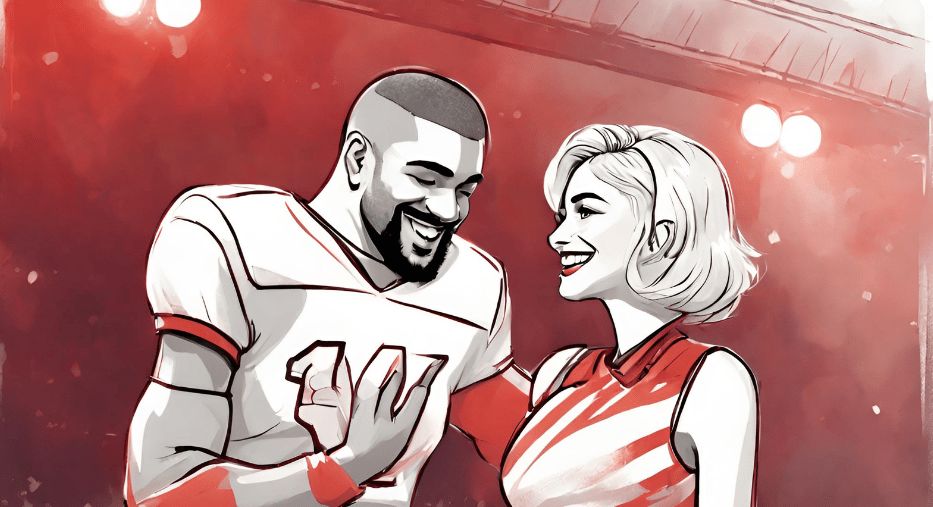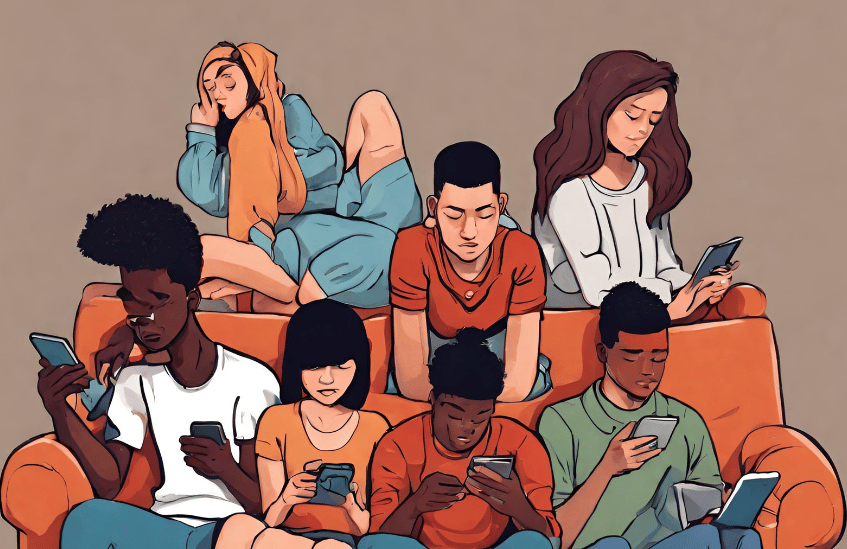I’m gonna get called a curmudgeon for this issue. You’ve heard me hoot & holler about copyright law in social media—it grinds my gears that young marketers ignore it just to get dopamine hits from their brand pages. So, today’s newsletter hits on:
Why you can’t use Taylor Swift + Travis Kelce memes
Why you, a brand for profit, don’t get fair use or parody outs
3 essays on what’s happening in social
—Jack Appleby
No, your brand can’t use Taylor Swift + Travis Kelce memes as content.

Listen, I love the whole Taylor Swift and Travis Kelce thing—those two are adorable as a couple. And now that the Chiefs are headed back to the Super Bowl, you can bet brands will run amuck with memes of the couple, especially with that sweet embrace after the AFC Championship game.
But brands—you gotta stop. You know you can’t use their likeness in your content. I know you do. But hey, let’s run through the FAQ on celebrity likeness and meme marketing one more time for this special occasion.
Is it legal to use celebrity likeness in brand social content?
No. Not unless you’ve paid for the rights for the photo, and really, not unless you’ve negotiated with the celebrity for the rights to their name and likeness.
What about organic content? Can we use celebs there?
No. Organic content is still advertising content for the business, coming from your business social account. That means the above applies.
Aren’t memes of celebs fair use? Or parody?
No. Per Westlaw today, there are four factors debated in fair use:
the purpose and character of the use, including whether such use is of a commercial nature or is for nonprofit educational purposes
the nature of the copyrighted work
the amount and substantiality of the portion used in relation to the copyrighted work as a whole
the effect of the use upon the potential market for or value of the copyrighted work.
You’re working for a brand. All of your content is of “a commercial nature” because you’re using it get your brand seen by potential customers. If you want more info on fair use, I dove deeper on wider meme marketing in the newsletter last year.
What law are you breaking if you use a celebrity photo?
Copyright law. You don’t have the rights to the photo, which violates the original photographer’s rights, and you don’t have the rights to the celebrity’s name, image, or likeness, which violates their own rights.
What’s it cost to properly license Taylor + Travis photos?
Head on over to Getty Images for their full library of the happy couple. Looks like the “large” versions of photos cost around $500 each… but wait, that’s for “standard editorial rights,” which specifically states this license doesn’t grant advertising rights. You’d have to request the Custom Rights pricing to negotiate that, which… well, you won’t. Because it would amount to celebrity endorsement, and you don’t have the budget.
Okay… but are we actually gonna get sued?
You sure could! And it’s happened with Taylor Swift!
Do you, a Social Media Manager, want to explain to your boss why you just received a six-figure lawsuit because you wanted to make a meme on a random Tuesday?
Jack, why are you so hard on memes? You whine about this stuff all the time. What’s the deal?
Honestly? Because it sets a horrible example for our industry. I watch social media managers constantly talk about wanting to be taken seriously, then use shitposting and celebrity memes as a social media strategy. Then those same social media managers interview at legitimate corporations and suddenly realize proper legal teams have absolutely no grace for liability.
The best way to be a great social media marketer: learn to love your product & portray its human benefits through content without memes, and even without trends. You don’t need them. They’re crutches, and you’re trading short term contraband engagement for the skills you’ll actually need at the next level.

There are so many social big thinkers out there, writing all kinds of amazing strategies, analysis, and breakdowns. All ships rise with the tide, so here are a few reads from other places I think you could learn from.
This is a big, big deal. Universal says TikTok won’t pay their artists fairly, so they’re yanking all of their songs. UMG is basically 33% of popular recorded music, including our issue’s star, Taylor Swift. Definitely a story to watch.
It’s pretty notable that Elon got Jimmy to even try the stunt, but it shouldn’t be used as evidence of anything—brands hopped on hard and threw pre-roll at it, significantly boosting the creator revenue exponentially more than anyone else would experience. TBD if Twitter users will watch long-form in feed.
Buddy pal Brett Dashevsky asked me about the birth of Future Social, how New York’s treated me, and where I see social headed this year.

Social Cues